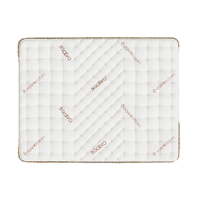Waking up with a headache? You might need a new mattress – here's why
Got a morning headache? Don't panic, you might just need a new mattress
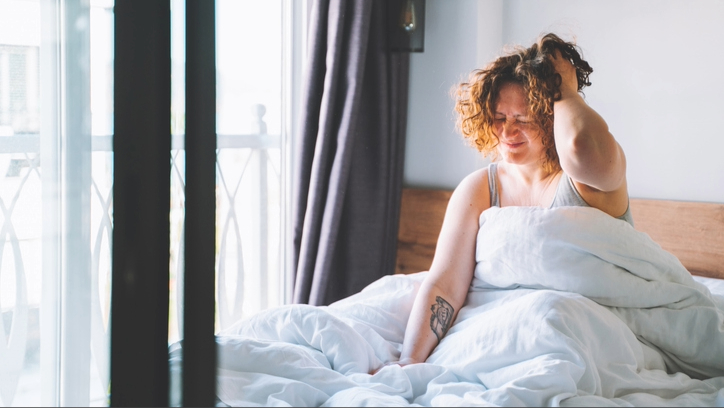
You’re probably here because you have woken up with a headache and frantically googled the meaning of this symptom, fearing the worst and expecting to find out you have a terminal condition. But rest assured, you might just need a new mattress.
Of course, there are medical and lifestyle reasons for morning headaches – the most obvious two being dehydration and a hangover after a heavy night drinking. But even if you’ve invested in one of this year’s best mattresses for all sleepers, from off-gassing to a lack of support for your sleep position and body weight, there are many ways your mattress can impact your health.
Waking with a headache just isn’t the refreshing start to the day we all seek. So, we’ve asked Dr. Chelsea Perry, owner of Sleep Solutions and a member of the American Academy of Sleep Medicine, how your bed can be causing morning headaches and how we can stop them.
What causes headaches in the morning?
Medical conditions, lifestyle choices and your sleep environment all contribute to how refreshed you feel waking up in the morning.
Waking up regularly with a pounding headache can be a sign of a sleep disorder (like sleep apnea), headache disorder (like migraine) or other health condition that exerts pressure on pain-sensitive nerve endings in your head (high blood pressure, for example).

Dr. Perry says: “Morning headaches can be caused by a variety of factors including poor sleep quality, dehydration or even grinding your teeth during sleep. Stress and tension from the day before can also carry over into the night, leading to headaches in the morning.”
It’s also worth paying attention to your mattress if you’re hydrating with water rather than wine, have had the green light at health check ups, yet you’re still waking up with a sore head.
Sign up to get the BEST of Tom's Guide direct to your inbox.
Get instant access to breaking news, the hottest reviews, great deals and helpful tips.
4 ways a mattress can cause morning headaches
1. You're tossing and turning
If you’re struggling to sleep at night, tossing and turning hours after you get into bed, your sleep quality will be impaired. This increases the chances of you waking up with a headache.
From establishing a sustainable routine that takes care of your circadian rhythm to avoiding using devices in bed and cutting caffeine later in the day, there are plenty of methods of promoting restful sleep.
If your sleep quality and duration is consistently compromised, you are likely to suffer from sleep deprivation in the long run. Sleep deprivation can cause heaviness in the forehead and lower your pain threshold, making you more susceptible to headaches.
Studies have long proven a link between sleep deprivation and headaches. A comfortable, supportive mattress is key to helping you find your sleep sweet spot, drift off easily and avoid waking up with headaches from being overtired.
2. Your mattress doesn't align your spine
A supportive mattress is essential to spine alignment, helping you curb muscular ailments (back pain, we’re looking at you) as well as neural problems like a headache.
Dr. Perry says: “A mattress that doesn’t properly support your head, neck, or spine can cause morning headaches by putting strain on your muscles and nerves while you sleep. If your mattress is too soft or firm, it can misalign your body, leading to tension and discomfort by morning.”
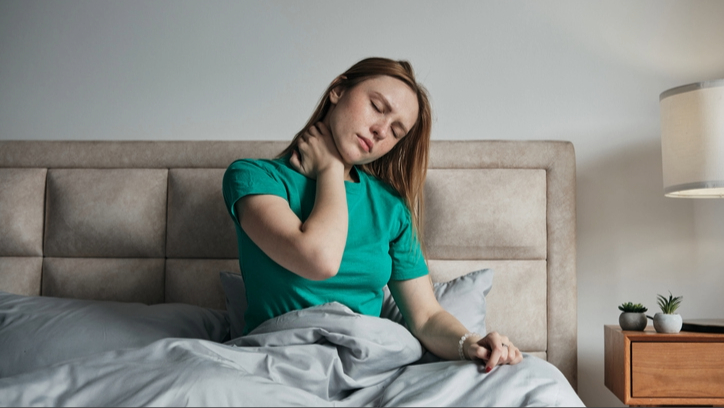
The sinkage, firmness and support you need from your mattress will depend on your sleep position and body weight. If your mattress doesn’t appropriately support your body and align your spine, extra stress and tension will be placed on your neck, shoulders and back leading to headaches in the morning.
As mattresses age they start to sag, compromising the level of body hugging and spine aligning support they are able to offer. A sagging mattress can cause lower back pain as well as head pain because of the extra tension on the neck.
3. You sleep awkwardly
You’ve got to help yourself with this one. It’s natural to move around a little during the night but if you’re prone to twisting into awkward positions while you sleep, this could be the reason you are waking up with a headache.
Dr. Perry says: “The way you sleep can also affect whether you wake up with a headache. Sleeping in awkward or strained positions can put pressure on your neck and shoulders, causing tension headaches or even migraines by the time you wake up.”
Side and back sleeping are often identified as the best positions for sleep by chiropractors as these positions promote proper (or neutral) spinal alignment, protect the joints and support the neck, shoulders and head, releasing tension in these areas that is likely to cause morning headaches.
A mattress that has features designed to support your sleep needs and sleep style will make it less likely you'll sleep awkwardly, helping you find the perfect position and remaining still throughout the night.
4. Your mattress is off-gassing
Mattress off-gassing is the process by which a new mattress – especially cheaper memory foam mattresses – releases a strong odor when packaging is removed.
This is the result of the breakdown of volatile organic compounds (VOCs), the byproducts of the manufacturing process. Unsurprisingly, this odor can cause headaches, particularly in people who are sensitive to scents.
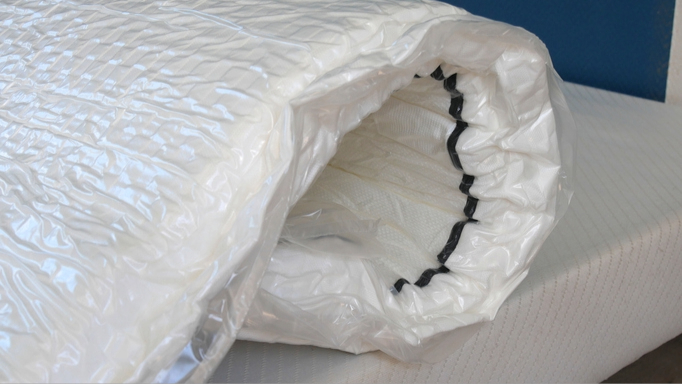
While off-gassing is part and parcel of buying a new foam mattress, it is advised you leave your mattress to rid itself of chemicals for at least three days before sleeping on it to avoid breathing in any chemicals that will make you wake up with a headache.
You can speed up off-gassing by removing plastic packaging from your mattress ASAP, making sure your mattress is in a well ventilated room or airing it outside if possible. Though mattresses from well-known reputable brands will hardly off gas.
How to prevent morning headaches from mattresses
Choose a mattress that suits your needs
You might not realize how personal mattress shopping is – there is certainly no one size fits all. A mattress suited to your sleep position, sleep needs and body weight is essential to restorative sleep.
Think: do you sleep on your side? Do you run hot at night? Are your hips a sensitive pressure point? Do you like to sink into your mattress slightly or sleep on top of it?
Although mattress firmness is subjective and different people feel different mattresses differently, the general rule is that heavy body sleepers need a firm sleep surface, while lighter weight people benefit from softer beds.
Similarly, the best mattress for side sleepers will have good pressure relief and the best mattress for back pain is one with strong lumbar support. Taking time to find a mattress that honors your sleep preferences will enable you to sleep well and wake up pain free.
Saatva RX mattress: Was from $1,995, now from $1,795
The Saatva RX mattress is one of the best mattresses for back and joint pain thanks to its Unique Therapeutic Support Core and Patented Lumbar Zone quilting. It's got a supportive plush feel that both aligns your spine and relieves pressure from key areas, making it perfect for side and back sleepers. With the current fall sale, a queen size is $2,945 (was $3,295) and you'll get free white glove delivery, free returns, a 365-night sleep trial and a lifetime warranty.
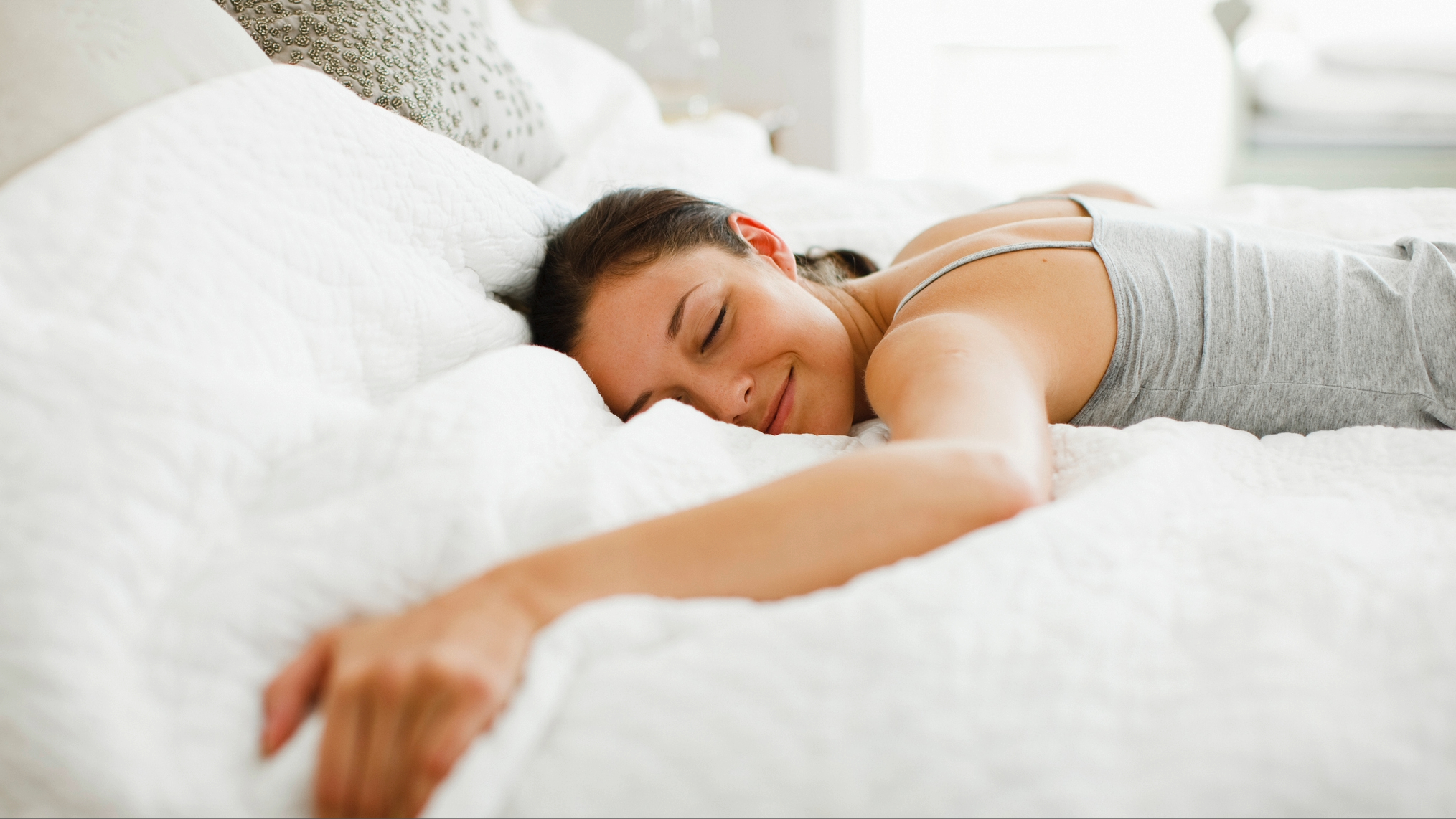
Replace your old mattress
If your old mattress is showing signs of wear and tear (lumps and bumps or sagging), it’s worth considering a new one to achieve optimal comfort and sleep quality.
Your bed becoming painful to sleep on, sagging or developing lumps and bumps are all things that happen to your mattress after 10 years or more of you sleeping on it night after night.
Once it reaches the end of its lifespan, a mattress will do your body no good. Quality sleep is the foundation of good health and a good mattress is vital to avoiding aches and pains. Therefore, replacing your mattress with one suited to your needs will relieve morning headaches.
Opt for a mattress topper
If forking out on a new mattress isn’t feasible for you at the moment, picking up one of this year’s best mattress toppers could be an effective solution for your morning aches.
These mattress toppers can give your old mattress a new lease of life without breaking the bank, giving you the support and comfort you need for soothing, headache-free sleep.
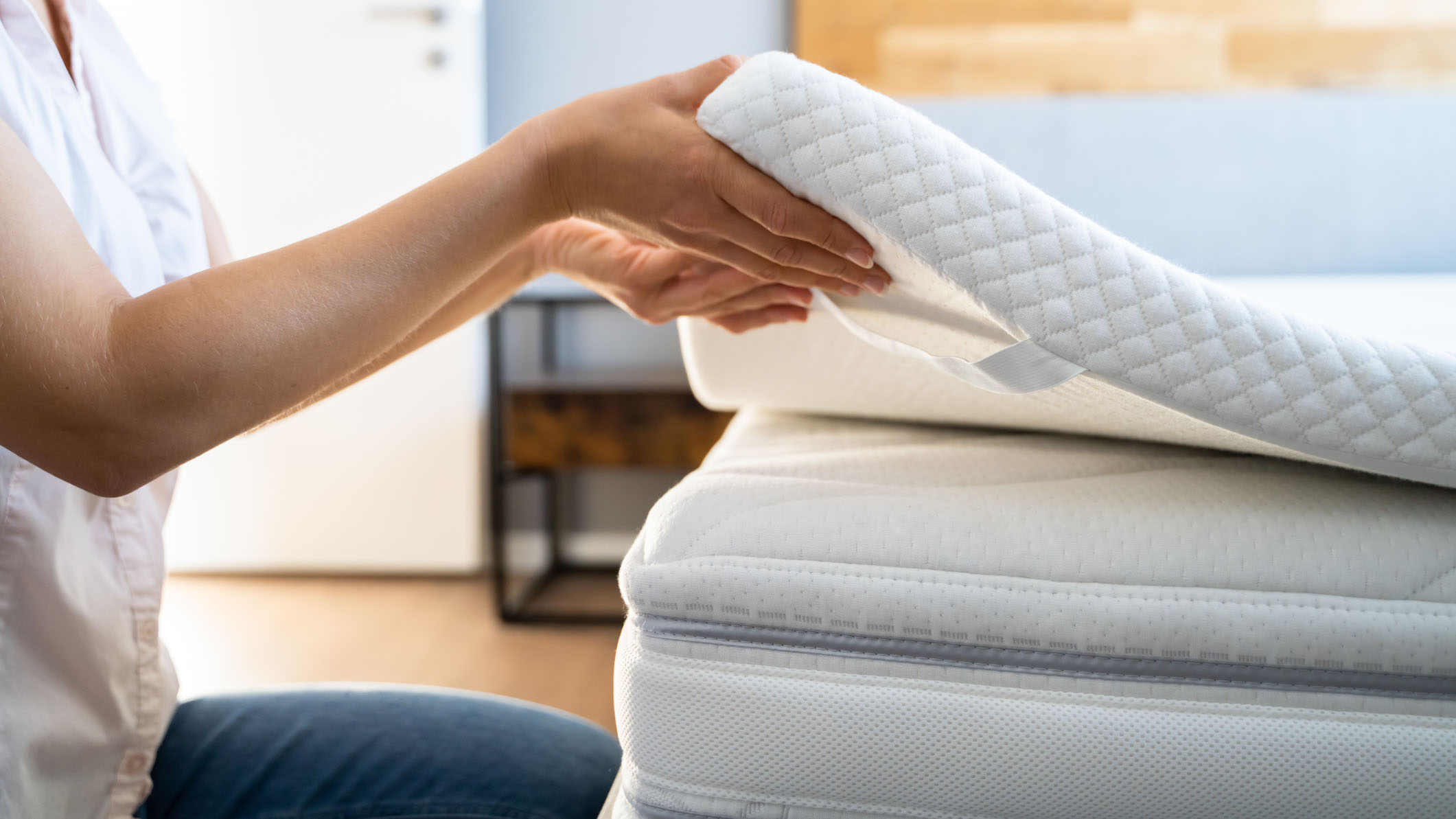
Encourage airflow through your room
Our circadian rhythm works on signals such as light and temperature and our body temperature naturally drops as you prepare for sleep. Therefore, the optimal temperature for sleeping is a cool one.
A ventilated sleep environment will not only help you drop off faster, it will also help you avoid the risks of sleeping in hot conditions. A hot bedroom means you will sweat more at night, leading to dehydration which equals headaches.
Sleeping on a cooling mattress in a well ventilated room will help stabilize your body temperature during the night, ensuring you sleep peacefully without any head pain encroaching on your morning.
Good ventilation can also help dissipate mattress off gassing and keep your mattress fresher for longer, creating an overall better sleep environment.
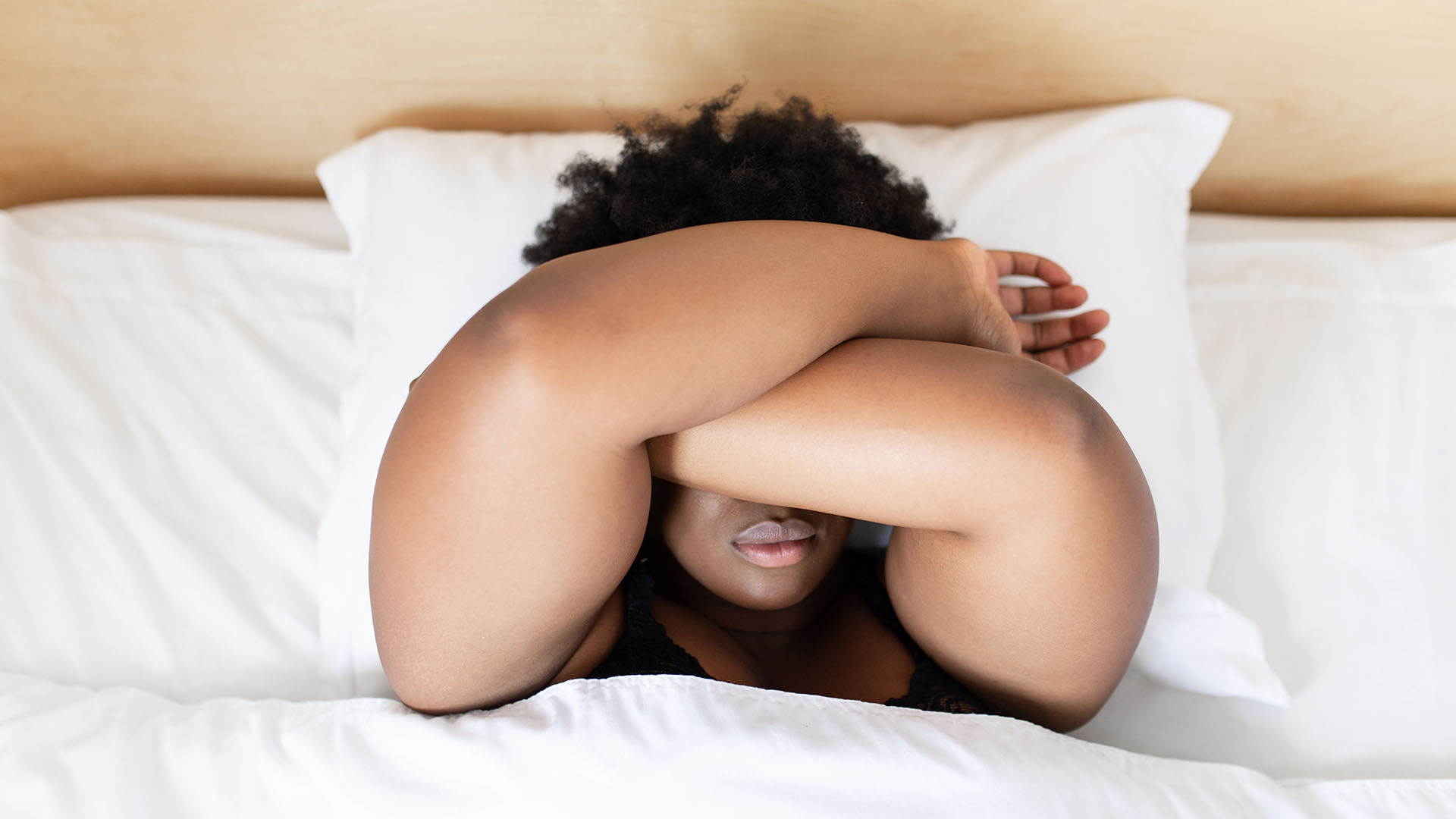
Can sleep apnea cause morning headaches?
Besides being a sign you need a new mattress, morning headaches can be a sign of sleep apnea. Sleep apnea is a sleep disorder where breathing stops and starts during the night. The resulting oxygen deprivation can cause headaches in the morning.
A 2020 study by Polish researchers with 1,131 participants found 29% of people with symptoms of sleep apnea report frequent morning headaches.
These headaches are characterized by pressure in the head. University Hospitals physician assistant Cameron Blank, PA-C, who specializes in sleep medicine, says: “Sleep apnea can directly cause what we call hypoxic headaches. These headaches usually don’t last long. Sometimes they disappear within an hour.”

Eve is a PPA-accredited journalist with an MA in Magazine Journalism from Cardiff University. She is a Sleep Staff Writer at Tom’s Guide and has four years’ experience writing health features and news. She is particularly interested in the relationship between good sleep and overall health. At Tom’s Guide Eve is responsible for coverage and reviews of sleep tech and is our smart and cooling mattress specialist, focussing on brands such as Eight Sleep and Sleep Number. She also covers general mattress reviews, seeks out the best deals to produce tried-and-tested buyer's guides for sleep accessories and enjoys writing in-depth features about sleep health. She has been involved in rigorous testing procedures for mattress reviews in our Sleep Studio and has interviewed experts including sleep doctors and psychologists. When not covering sleep at Tom's Guide, Eve enjoys writing about health and fitness, food and culture.
